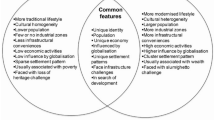Abstract
This paper documents recent changes in legislation and policies surrounding prostitution in Portugal while discussing the role played by sexual trafficking in the way prostitution is framed, institutionally and socially, in the country. In Portuguese legislation, prostitution has not been a crime per se since 1982, but activities related to prostitution, including pimping and benefitting from the prostitution of others, are considered crimes. This legal inconsistency is further complicated by the lack of specific policies addressing the living and working conditions of sex workers. At the same time, growing concern about sex trafficking has resulted in a new set of policies that ultimately influence the regulation of prostitution, in particular the prostitution of immigrant women. This paper shows that these sex-trafficking-related policies and practices have contributed to creating idealized types of “victims” and investigates the risks and consequences of this typology.
Similar content being viewed by others
Notes
Approved and ratified by Portugal in 2004
Ratified in Portugal by Presidential Decree no. 48/91 of 10 October
The protocol states in Article 3 that trafficking is defined as “The recruitment, transportation, transfer, harboring or receipt of persons, by means of the threat or use of force or other forms of coercion, of abduction, of fraud, of deception, of the abuse of power or of a position of vulnerability or of the giving or receiving of payments or benefits to achieve the consent of a person having control over another person, for the purpose of exploitation.”
Southern perspective or Southern epistemology is viewed as the retrieval of knowledge and practices of social groups that, because of capitalism and colonialism, were subordinated, historically and sociologically transformed into objects or feedstock for dominant Western knowledge, which was considered the only valid one (see Santos 2008).
State feminism is the action of official mechanisms of equality intended to introduce the demands of women's groups into the state, whether to influence the political process in order to achieve results or with the goal of effecting concrete social change or both (McBride and Mazur 2008; Hernes 1987).
The National Equality Plans seek to strengthen national policy in the field of gender equality, meeting the commitments made at both national and international levels. The first National Equality Plan was created in 1999. The second plan started in 2003 and ended in 2006. The third one—called National Plan for Equality, Citizenship and Gender—was in force from 2007 to 2010. The fourth plan, with the title National Plan for Equality—Citizenship, Gender and Non-Discrimination, started in2011 and will finish in 2013.
There are some movements that suggest that in the future, there may be a more organized movement, even if supported by a faction of the feminist or LGBT movement. It is the case of the public demonstrations on Labor Day which, over the last 3 years, have seen self-organized people working in the sex industry demanding social rights. A special mention also goes to the Rede sobre Trabalho Sexual (RTS) (Network on Sexual Work), created in 2011, which represents the majority of national organizations that intervene directly on behalf of sex workers. The RTS comprises a group of organizations and individuals who work with people in the sex industry. This network feels that sex work is multifaceted and the experiences of those working in this field are varied and cannot be reduced to abuse, trafficking, and sexual exploitation. The still recent network has little visibility in the public arena.
Decree-Law no. 44 579 of 19 September.
Decree-Law no. 48/95 of 15 March.
Law no. 59/2007 of 4 September.
Law no. 59/2007 of 4 September.
The original title is “Mulheres brasileiras na conexão ibérica: um estudo comparado entre migração irregular e tráfico.” The Portuguese case was conducted by Madalena Duarte.
The respondents were recruited though shelters and state authorities/institutions (e.g., border control officials).
Although immigration routes do not necessarily have to coincide with the trafficking routes, there is a tendency for the recruitment of victims for a particular country to be related to the immigrant communities which have already established themselves there. Brazil is one of the main countries of immigration to Portugal mainly because Portuguese is the language spoken in both countries.
“Mothers of Bragança” was a movement organized in 2003 by a group of women from the city of Bragança, in northeast Portugal, with the aim of driving out of town those Brazilian women working in clubs or as prostitutes.
Among the legal instruments, police officers have to regulate social and sexual behaviors; we find regulation of car traffic, closing down of sex clubs or venues known for sex work, and the identification of women who are working as prostitutes on the street.
According to the Immigration Law—Law 23/07 of 4th July 2007—in Portugal, residence permits for victims of trafficking are issued if the person concerned cooperates with the authorities. Once the case is closed and the person decides to stay in Portugal, another residence permit is issued based on the general Portuguese provisions for residence permits, which entitles the person to the same rights as a Portuguese citizen including social security system, etc. When the victim does not want to cooperate with the authorities, a staying permit on special grounds can be issued, i.e., if the person concerned is at risk or if the family of the person is at risk and protection cannot be ensured.
References
Aghatise, E. (2004). Trafficking for prostitution in Italy: possible effects of government proposals for legalization of brothels. Violence against women, 10, 1126–1155.
Agustín, L. (2007). Sex at the margins: Migration, labour markets and the rescue industry. London: Zed Books.
Alpes, M. J. (2008). The traffic in voices: contrasting experiences of migrant women in prostitution with the paradigm of “human trafficking”. Human Security Journal, 6, 34–45.
Anderson, B., & Davidson, J. (2002). Trafficking—a demand led problem. Sweden: Save The Children.
Aronowitz, A. A. (2001). Smuggling and trafficking in human beings: the phenomenon, the markets that drive it and the organisations that promote it. European Journal on Criminal Policy and Research, 9, 163–195.
Barry, K. (1995). The prostitution of sexuality. New York: New York University Press.
Bastos, S. P. (1997). O Estado Novo e os seus vadios. Contribuições para o estudo das identidades marginais e da sua repressão. Lisboa: Publicações Dom Quixote.
Doezema, J. (2005). Now you see her, now you don't: sex workers at the UN Trafficking Protocol negotiations. Social & Legal Studies, 1, 61–89.
Drakopoulou, M. (2007). Feminism and consent: A genealogical inquiry. In R. Hunter & S. Cowan (Eds.), Choice and consent: Feminist engagements with law and subjectivity (pp. 9–38). London: Routledge.
Duarte, M. (2004). Participation through justice: a (new) way of protest. Il Dubbio, 2, 30–43.
Ehrenreich, B., & Hochschild, A. R. (2002). Global woman: Nannies, maids and sex workers in the new economy. London: Granta Books.
Engle, L. B. (2004). The world in motion: Short essays in migration and gender. IOM.
Gaspard, F. (1998). Invísiveis, diabolizadas, instrumentalizadas: figuras de mulheres migrantes e das suas filhas na Europa. Revista Crítica de Ciências Sociais, 50, 83–101.
Guinote, P., & Oliveira, R. B. (1989). Prostituição, boémia e galanteria no quotidiano da cidade. In A. Reis (Ed.), Portugal Contemporâneo (pp. 339–382). Lisboa: Publicações Alfa.
Hernes, H. (1987). Welfare state and woman power: Essays in state feminism. Oslo: Norwegian University Press.
Hunter, R., & Cowan, S. (Eds.). (2007). Choice and consent: Feminist engagements with law and subjectivity. London: Routledge.
Jeffreys, S. (1999). Globalizing sexual exploitation: Sex tourism and the traffic in women. Leisure studies, 18, 179–196.
Kapur, R. (2001). Post-colonial economies of desire: legal representations of the sexual subaltern. Denver University Law Review, 78(4), 855–85.
Kapur, R. (2006). Revisioning the role of law in women's human rights struggles. In S. Meckled-García & B. Çali (Eds.), The legalization of human rights: multidisciplinary perspectives on human rights and human rights law (pp. 93–107). London: Routledge.
Kempadoo, K. (2005). From moral panic to global justice: Changing perspectives on trafficking. In K. Kempadoo (Ed.), Trafficking and prostitution reconsidered: New perspectives on migration, sex work, and human rights (pp. 3–24). Boulder: Paradigm Publishers.
Kempadoo, K., & Doezema, J. (Eds.). (1998). Global sex workers: Rights, resistance, and eedefinition. New York: Routledge.
Leal, M. L., & Leal, M. F. (2007). Enfrentamento do Tráfico de Pessoas: uma questão possível? Política Nacional de Enfrentamento ao Tráfico de Pessoas, 1, 28–32.
Leal, M. L., Duarte, M., & Teresi, V. (Eds.). (2011). Mulheres brasileiras na conexão ibérica: um estudo comparado entre migração irregular e tráfico. Brasília: CNQP.
Lopes, A. (2001). Sex workers of the world unite. Feminist Review, 67, 151–153.
McBride, D. M., & Mazur, A. (Eds.). (2008). Comparative state feminism. Thousand Oaks: Sage.
Oliveira, A. (2004). As vendedoras de ilusões: Estudo sobre a prostituição, alterne e striptease. Lisboa: Editorial Notícias.
OTSH. (2010). Trafficking in human beings: National report. Lisbon: DGAI.
Outshoorn, J. (2005). The political Debates on Prostitution and Trafficking of Women. Social Politics, 12(1), 141–155.
Ribeiro, M., Silva, M. C., Ribeiro, F. B., & Sacramento, O. (2005). Prostituição abrigada em clubes (zonas fronteiriças do Minho e Trás-os-Montes). Lisboa: CIDM (Colecção Estudos de Género).
Roberts, N. (1996). A prostituição através dos tempos na sociedade ocidental. Lisboa: Editorial Presença.
Santos, B. S. (1995). Toward a new common sense. London: Routledge.
Santos, B. S. (2009). Toward a multicultural conception of human rights. In F. G. Isa & K. Feyter (Eds.), International human rights law in a global context (pp. 97–121). Bilbao: University of Deusto. Toward a multicultural conception of human rights.
Santos, A. C. (2010). Portugal. In Sasha Roseneil (Ed.), Changing cultural discourses about intimate life: the demands and actions of women's movements and other movements for gender and sexual equality and change. FEMCIT Working Paper 2, available at http://www.femcit.org/files/WP6_WorkingpaperNo2.
Santos, B. S., Duarte, M., & Gomes, C. (2005). The sexual trafficking of women: Representations of illegality and victimisation. RCCS Annual Review, 2, 1–25.
Santos, B. S., Duarte, M., Gomes, C., & Baganha, M. (2008). Trafficking in women for the purpose of sexual exploitation in Portugal. CIG (Colecção Estudos de Género): Porto.
Santos, B. S., Duarte, M., & Gomes, C. (2010). The sexual trafficking of women: Representations of illegality and victimisation. RCCS Annual Review, 2, 1–25.
Sassen, S. (2003). Global cities and survival circuits. In B. Ehrenreich & A. R. Hochschild (Eds.), Global woman: Nannies, maids and sex workers in the new economy (pp. 254–274). London: Granta Books.
Scoular, J. (2004). The ‘subject’ of prostitution: interpreting the discursive, symbolic and material position of sex/work in feminist theory. Feminist Theory, 5(3), 343–355.
Scoular, J., & O’ Neill, M. (2007). Regulating prostitution: social inclusion, responsibilization and the politics of prostitution reform. British Journal of Criminology, 47, 764–778.
Scoular, J., & Sanders, T. (2010). Regulating sex/work: From crime control to neo-liberalism? London: Wiley.
Skilbrei, M., & Tveit, M. (2008). Defining trafficking through empirical work: blurred boundaries and their consequences. Gender Technology and Development, 12(1), 9–30.
Sullivan, B. (2003). Feminism and new international law. International Feminist Journal of Politics, 1, 67–91.
Sullivan, B. (2004). Prostitution and consent: Beyond the liberal dichotomy of “free or forced”. In M. Cowling & P. Reyonolds (Eds.), Making sense of sexual consent (pp. 127–140). Aldershot: Ashgate.
Tavares, M. (2011). Feminismos em Portugal: Percursos e desafios. Lisboa: Texto.
Téchio, K. (2006). Conhecimentos de Alterne: A outra diáspora das imigrantes brasileiras. Socius Working Papers, 2, 1–22.
Valiente, C. (2007). Are gender equality institutions the policy allies of the feminist movement? A contingent ‘yes’ in the Spanish central state. South European Society and Politics, 3, 315–334.
Vaz Patto, P. (2007). O crime de tráfico de pessoas no Código Penal revisto. Análise de algumas questões. Jornadas sobre a Revisão do Código Penal – 27 e 28 de Setembro de 2007, Lisboa: CEJ.
Author information
Authors and Affiliations
Corresponding author
Rights and permissions
About this article
Cite this article
Duarte, M. Prostitution and Trafficking in Portugal: Legislation, Policy, and Claims. Sex Res Soc Policy 9, 258–268 (2012). https://doi.org/10.1007/s13178-012-0093-2
Published:
Issue Date:
DOI: https://doi.org/10.1007/s13178-012-0093-2




